#Digital Autonomy
Explore tagged Tumblr posts
Text
Well shit. I walk back what I said. that works for my spouse's phone too. Wth. Thanks for solving that for me.
yknow what would be a fucked up phone feature
#dystopia#capitalist hell#late stage capitalism#techblr#phones#technology#consumer rights#digital dystopia#forced obsolescence#anti consumer design#planned obsolescence#right to repair#tech industry greed#digital autonomy#loss of control#tech frustration#privacy concerns#tech monopoly#corporate greed#unethical design#hardware restrictions#tech criticism#corporate overreach#dystopian tech#firmware locks#software paywalls#anti consumerism#modern inconvenience#user rights#tech accessibility
116K notes
·
View notes
Text
The Illusion of Freedom: Uncovering the Forces Shaping Our Choices
Imagine a life where every decision you make – from your career path to the products you buy – feels entirely within your control. But is it? The concept of freedom, often idealized as a fundamental human right, maybe more elusive than it appears. As Jean-Jacques Rousseau once said, “Man is born free, and everywhere he is in chains.” This powerful observation raises an essential question about…
#Digital Autonomy#Financial Freedom Myth#Freedom vs. Control#Hidden Influences#Modern Society and Freedom#Political Influence#Psychology of Choice#Social Conditioning#True Freedom
0 notes
Text
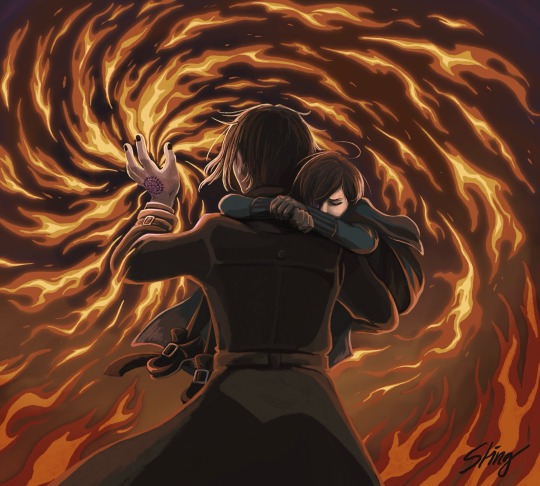
you cling so tightly to the beast that waits to devour you
(please don’t tag as ship)
#i was watching noah's ark circus and it really hit me how tiny and young ciel is because his actor in that show is so small#i think the narrative in the manga gives him adult autonomy and authority so it's easy to forget he's just a kid#their relationship makes me feel ill in both a positive and negative way that’s hard to articulate#hopefully an image is worth a thousand words haha#as a christian im kinda ehhh about drawing the mark of the covenant but i suppose it's fictional so...#i added “dont tag as ship” when i posted and i wonder if i should have clarified that this isn't meant to be a “dadbastian” image either?#this isnt the domesticated creature caring for his small human son this is a predator protecting its quarry to be consumed later#i feel like “ship” and “dad” are at opposite ends of a field and their canonical relationship is actually somewhere completely different#well... one of those far-off interpretations is nicer to imagine than the other haha#kuroshitsuji#black butler#bb#black butler book of circus#book of circus#ciel phantomhive#o!ciel#our ciel#sebastian michaelis#sebastian black butler#ciel black butler#my art#digital art#2025
426 notes
·
View notes
Text
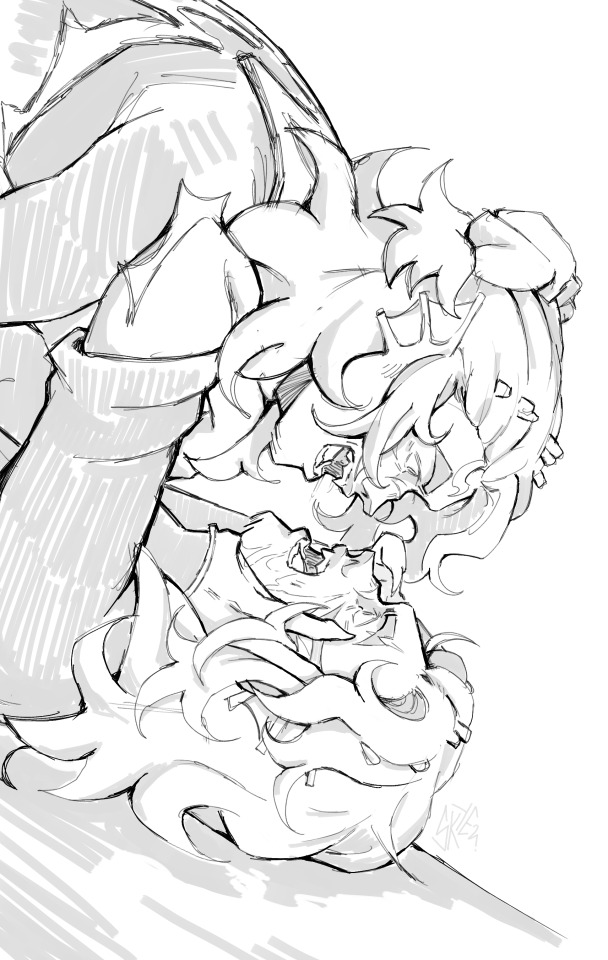
NIGHTMARE NIGHTMARE NIGHTMARE
#gillion and his fucked up twin brother i guess#i hope charlie takes it further with gillion being fucking terrified of that thing and it fucks him up even more cause#it walked like you talked like you it tricked your friends it was you#it's just you#now you're looking at a wreckage of what was you#breathing heavily discarded somewhere on the deck of your ship stripped out of it's autonomy#it's terrifying and it fills you with dread#you want to stop looking but you cant#how is he different from you#he's not because he's you#he's just you#good god i love doppelgängers#jrwi riptide#jrwi#just roll with it#jrwi fanart#digital art#gillion tidestrider#sketches
642 notes
·
View notes
Text
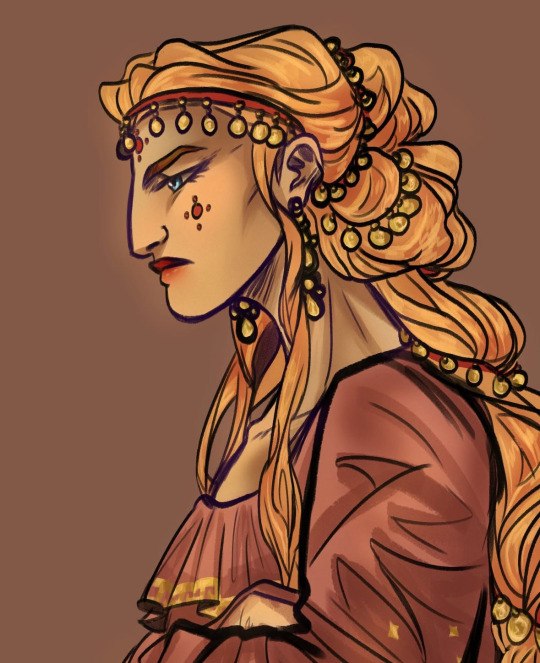
Helen, the face that launched a thousand ships
#your honor she’s gorgeous to me#I also liked the idea that especially her side profile kinda looked like Athena#bastardizing a maiden goddess… someone already sought after who has the power to sweep suitors and men aside#then there’s Helen who was kidnapped at age twelve by Theseus who has her autonomy stripped again by Paris and who’s stuck in Troy#where according to her in the illiad the only person in the whole city who’s kind to her is Hektor#ouch ouch ouch#love the idea she looks constantly sad or angry because fuck I would be too#helen of sparta#the illiad#my art#art#digital art#fanart
202 notes
·
View notes
Text
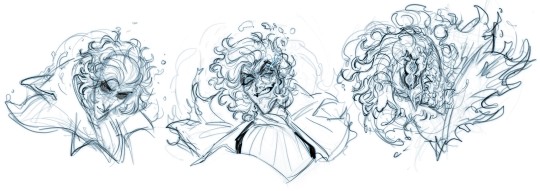
Drinking sea water
#kodasea#own art#2023 art#digital art#digital artist#digital sketch#procreate art#procreate sketch#sketch#expression sheet#expressions#oc artist#oc artwork#oc art#cold case crew#cold case detective#lawrence#Another to add to the redraw books#I want to finalize how possession works with Lawrence#I'm thinking depending on the entity it manifests differently (and there's probably different levels of autonomy)#Felicia is probably the most gleeful and consuming#Lobsters might get his hands more but leave his mind (just enhance the murdery parts)#cw body horror
169 notes
·
View notes
Text
Cussing & Censorship in Modern Media
I've heard some people complain about the amount of cussing and swearing that goes on in Helluva Boss. And I won't deny-- it's a lot!
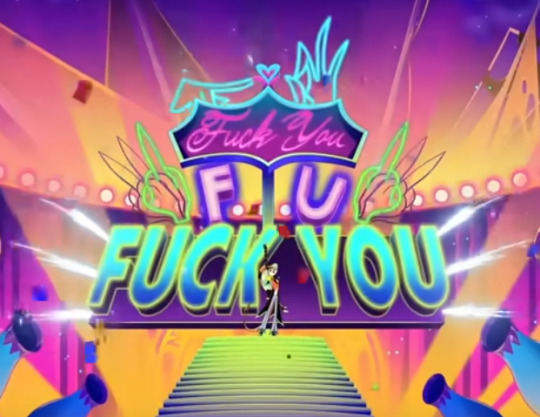
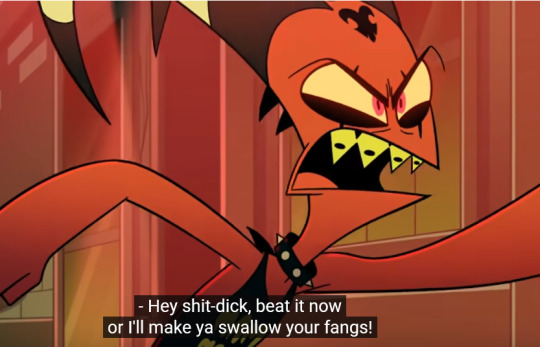
But let's put that aside for a moment. Let's talk about cussing-- or rather, the deliberate, highlighted LACK of cussing in The Amazing Digital Circus.
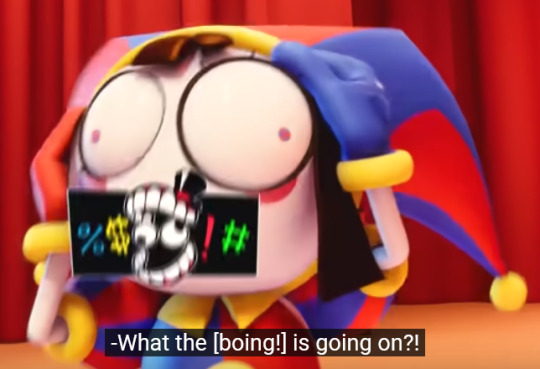
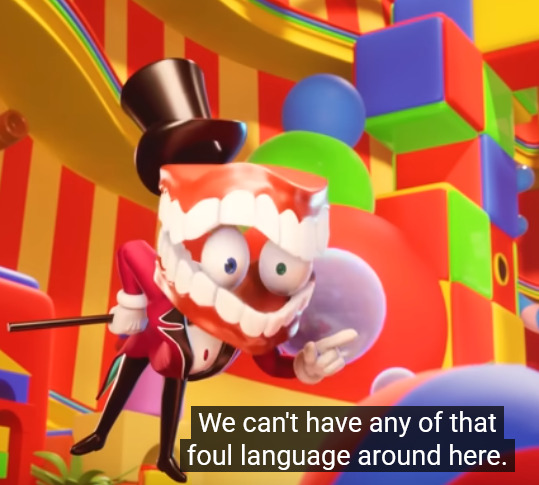
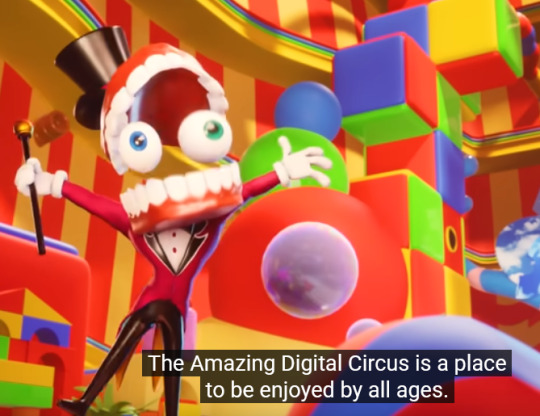
Or let's go back slightly further! How about that "adult language" in The Good Place, another show with NO children in the main cast, OR the target audience!
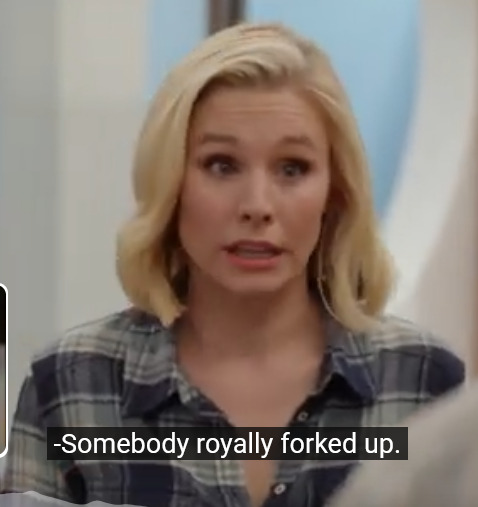
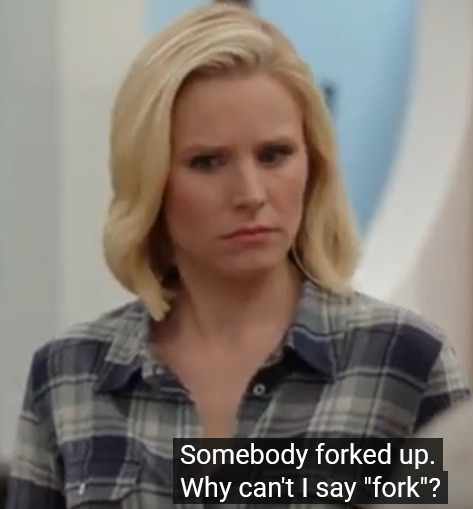
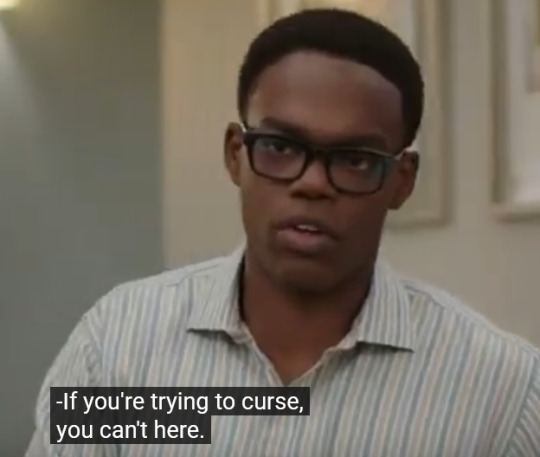
In both cases, the censorship is a violence committed against our main cast. In the name of keeping things "family-friendly" and "child safe"-- even in the complete absence of any ACTUAL CHILDREN-- words are taken from their vocabularies.
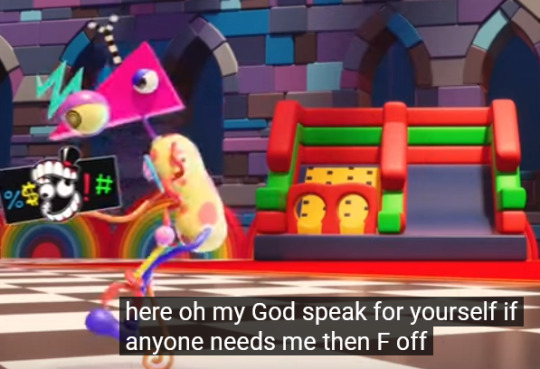
This is the first proof of Cain's control over the Digital Circus-- the ability to block their words & gestures, to suit his own preferences.
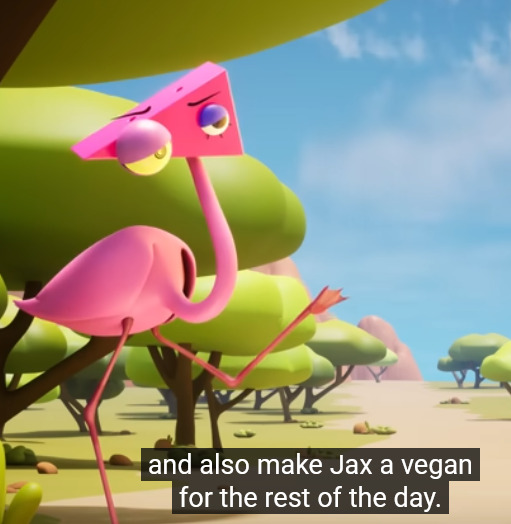
He can change them. He can MAKE them act the way he wants.

Make the not swear. Make Jax a vegan. It's all the same-- it's a matter of control.
Now, let's look at Helluva Boss again.
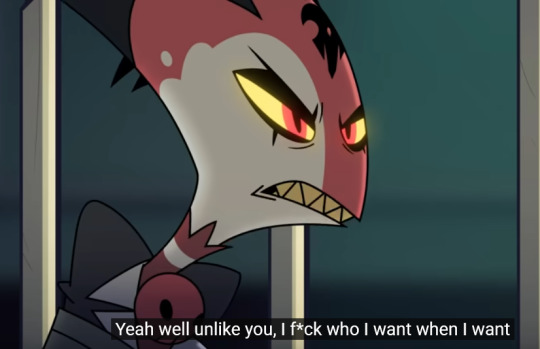
Let's look at what they can get away with saying in this show.
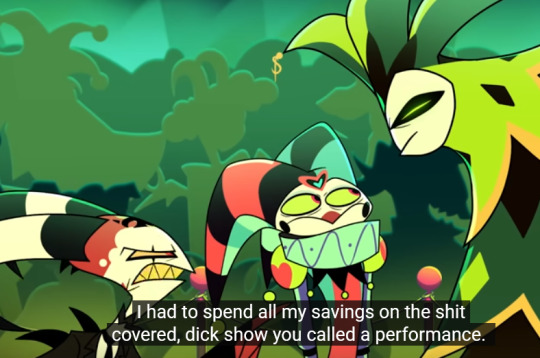
It's not exactly the kind of language that those mythical Corporate Overlords from the Advertising Department want showing on prime-time, is it?
It's Hell, but at least they can say the words out loud. At least the "Freedom of Speech" doesn't come with an asterisk.
#helluva boss#the good place#amazing digital circus#rambling thoughts#censorship#puritanism#personal autonomy
82 notes
·
View notes
Text

johnathan sims, head archivist of being paranoid af
#yes yes he has a nose ring big deal he has bodily autonomy#just WAIT until i get my body horror mits all over TMA#the magnus archive fanart#digital art#sketch#johnathan sims#johnathan sims fanart#the magnus archives
192 notes
·
View notes
Text

When you can’t draw a consistent autonomy for gourmand so you have to make a whole new one
#rain world#rain world downpour#rw gourmand#artists on tumblr#digital art#autonomy#furry art#my anthro au#rw anthro#slugcat#rainworld art#cuga.draws
13 notes
·
View notes
Text
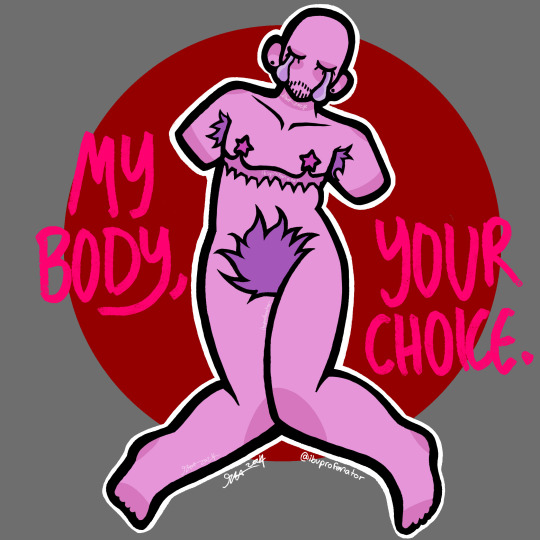
people are now crawling out of the woodworks to spew the hatred they’ve kept under wraps.
stay safe.
#ibuprofenator#digital artist#my art#small artist#art#artists on tumblr#artwork#digital art#illustration#trans artist#trans man#transgender#trans nsft#transmasc#trans pride#my body my choice#pro choice#womens rights#abortion is healthcare#bodily autonomy#abortion#leftist politics#political art#politics#2024 election#election 2024#us elections#presidential election#leftism#leftist
32 notes
·
View notes
Text

They're buddies :3
#PLEASE GOD LET KAMALA WIN THE ELECTION TONIGHT I WANT TO KEEP MY BODILY AUTONOMY#artists on tumblr#art#digital art#digital illustration#crossover fanart#crossover#my little pony#danganronpa#my little pony friendship is magic#mlp fim#my little pony fanart#danganronpa fanart#danganronpa 2#super danganronpa 2#danganronpa goodbye despair#fluttershy#mlp fluttershy#gundham tanaka#danganronpa gundham#platonic ship#gundham x fluttershy#fluttershy x gundham#flutterdam#purple#pastel#pastels#pastel purple#crackships#crackship
23 notes
·
View notes
Text

#👨🏽🎨 My Art 👨🏽🎨#🚫 ANTI AI 🚫#object head#object oc#original character#artists on tumblr#digital collage#ibispaintx#dreamcore#weirdcore#oddcore#strangecore#aesthetic#unreal#surreal#abstract#empowerment#ex#healing#vent art#dereality#floral#bodily autonomy#boundaries#no regrets#Rose#roses#flowers#uncanny
8 notes
·
View notes
Text
Okay so like—maybe I snapped. Maybe I had one too many matcha lattes and accidentally opened the comments section. My bad. But why is the internet so obsessed with turning every female creator into a public property with a user manual? I swear, the moment a girl dares to glow up, speak up, clap back, or—God forbid—get a boob job, people act like she burned the constitution. And I’m just sitting here, with my emotional support hoodie and a rage migraine, wondering: when did we decide that personal growth is betrayal? When did female autonomy become public offense? Why is every girl online either a saint or a sellout? No in-between. I’m so over this. Like fully, aggressively, “make-an-essay-and-quote-it-on-Tumblr” over this. So here. Enjoy the thesis, besties.
On Clara Dao:
The Clara Dao discourse reveals more about the public’s unresolved projection complex than it does about Clara herself. To dissect the backlash through a lens of socio-psychological behavior, it becomes evident that many individuals tethered their own body image recovery journey to her personal choices—creating a parasocial dependence wherein her perceived authenticity was conflated with collective healing. Her decision to undergo a breast augmentation is not a betrayal of self-love or naturalism; it is, in fact, an embodiment of bodily autonomy. One can embrace radical acceptance and still wish to edit aspects of themselves—not out of internalized hatred, but nuanced self-direction. Growth, as both a scientific and emotional phenomenon, is non-linear. To accuse her of being a hypocrite is to deny her personhood and human complexity. Clara was never a brand; she is a breathing person. And persons are allowed to evolve.
Moreover, this demand for moral constancy—this insatiable appetite to freeze influencers in the era they first rose to fame—suggests a subconscious resistance to female transformation. Particularly transformations that involve power, visibility, and desire. Clara’s aesthetic change becomes threatening not because she lied (she didn’t), but because she dared to want more. Her platform may have helped others love their bodies, but that never meant she signed a social contract to remain unchanged for the sake of public comfort. This expectation is both emotionally parasitic and ethically absurd. The truth is, Clara Dao owes no one the stagnation of her former self. She owes only herself the permission to evolve.
On Lala Sadi:
The vitriol toward Lala Sadi reeks of performative moralism disguised as cultural critique. What people call “inauthentic” or “too much” is actually a coded rejection of female enthusiasm, exuberance, and non-linear emotional narratives. We live in a digital ecosystem where a woman being loud, passionate, or dramatic is criminalized under the pretense of “annoyance” or “dishonesty”—as if performativity isn’t the nature of content creation itself. Lala’s content has matured. Her voice now holds more depth, more self-awareness, and yet she remains unapologetically herself—which, ironically, is exactly what everyone demanded of her. But when real emotion doesn’t align with the public’s projection of what “real” should look like, they call it fake. She was never a liar. People just don't know what it means to be a full, layered, chaotic woman on the internet.
On Apoorva Mukhija:
Apoorva Mukhija, or “The Rebel Kid,” is not the villain of her narrative—she is its most brutal casualty. What occurred on that stage was not “banter” or “harmless teasing.” It was a microcosm of a deeply embedded misogynistic power dynamic, where a woman reacting at all becomes a moral infraction. The way her assertiveness was reframed into aggression reveals society’s deeply conditioned fear of the angry woman—a woman who speaks up, who doesn’t laugh off humiliation, who doesn’t self-deprecate to cushion male egos. The threats she received—death, rape, acid—are not just online “hate.” They are gendered terrorism. They are meant to frighten women into silence and submission. This isn't drama. This is the digital enactment of patriarchal control.
Furthermore, the hypocrisy here is bone-deep. When men clap back or “roast” others on the internet, they’re crowned as clever and bold. When women do it, especially in response to something violating, they’re painted as vindictive and attention-seeking. Apoorva didn’t attack someone for the sake of virality—she defended herself when disrespected publicly. And yet somehow, her defense became the crime. This is moral distortion at its finest. It’s the public convincing itself that women must earn the right to be angry. That women must be pleasantly oppressed. What people wanted wasn’t an apology—they wanted to punish her for not making herself smaller in a moment that demanded strength.
Finally, let us speak of the silence. The influencers, the male creators, the audience that laughed or stayed quiet or rebranded their complicity as neutrality. Their indifference was not passive—it was violently loud. Apoorva stood alone. She was devoured for breaking character in a play that demands women smile through pain. But she didn’t. And that, more than anything, was her crime. That she refused to be a good girl. That she raised her voice, stood her ground, and exposed an entire system with one moment of unapologetic fire.
#body autonomy#internet morality crisis#clara dao deserves better#lala sadi was real#justice fro apoorva#influencer double standards#the female glowup scares them#moral policing is not feminism#let women change#loud women are valid#stop weaponising relatabilty#not your digital doll#feminine rage aesthetic#tumblr thesis#she was loud and she was right#they hate women who clap back#pretty and powerfull's a threat#main character energy unlocked#messy girls deserve peace too#big thoughts small waist no mercy
10 notes
·
View notes
Text
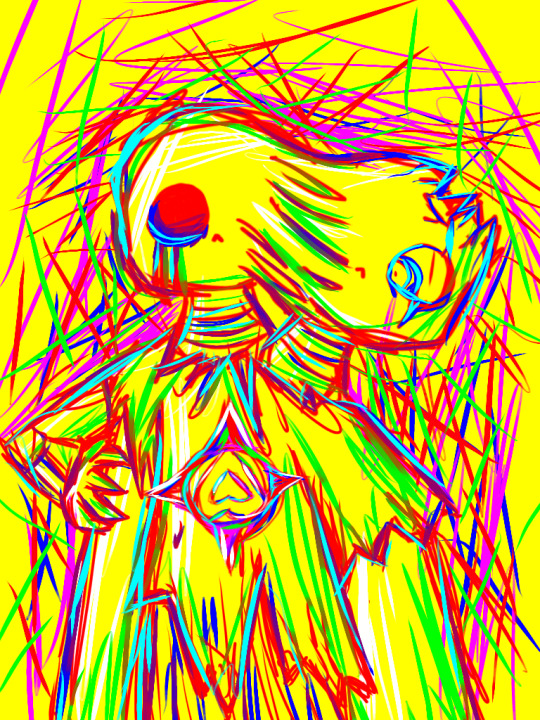
Mtt fusion!! By @dearmizumi
Really wanted to draw this guy and had fun playing with the colours^^
Killer sans by @ rahafwabas
Dust sans by @ ask-dusttale
Horror sans by @ sour-apple-studios
#eyestrain#eyestrain tw#undertale au#undertale#sans au#killertale#something new#killer sans#dusttale#dust sans#murder sans#horrortale#horror sans#mtt#murder time trio#mtt fusion#art#digital art#I feel like this would have something to do with killer’s soul studies#/its all killer’s fault#ignore my lack of autonomy#initially was just gonna be a black and white sketch but I decided I wanted to play with bright colours
43 notes
·
View notes
Text
Dwelling Beyond Capture – Reclaiming the Texture of Being
In a digital epoch saturated by relentless visibility, the imperative to be seen has become axiomatic. Photo by Pixabay on Pexels.com Algorithms sculpt perception, presence is quantified into reach and engagement, and our subjectivities, once sacred, unruly, and intimate, are now datafied for optimisation, circulation, and extraction. What is lost in this conversion is not merely privacy or…

View On WordPress
#Affect Theory#algorithmic culture#anti-consumerism#Attention Economy#attention politics#capitalism critique#commodification of self#contemporary philosophy#critical phenomenology#digital ontology#digital subjectivity#embodied presence#ethics of care#existential autonomy#meditative resistance#neoliberal subjectivity#ontological resistance#performative society#phenomenology of being#platform capitalism#political economy of visibility#post-capitalist ethics#post-digital critique#presence and refusal#Raffaello Palandri#refusal as praxis#selfhood beyond identity#silence and resistance#surveillance capitalism
2 notes
·
View notes
Text
What will you do if the Internet goes down?
The prospect of a widespread internet disruption is a genuine concern in our increasingly digital world. Our reliance on the internet for communication, commerce, and information access makes us vulnerable to the consequences of a prolonged outage. The centralization of our digital infrastructure, with a few tech giants controlling a significant portion of the cloud, exacerbates this vulnerability. A disruption to these services would have a ripple effect, impacting businesses, supply chains, and individuals alike.

However, crises often breed opportunities. Could an internet outage catalyze the rise of decentralized, community-driven networks? We've seen glimpses of this resilience in mesh networks used during protests and the proliferation of open-source tools promoting digital freedom. Could such initiatives not only survive but flourish in a landscape devoid of the traditional internet? Personal resilience starts with individual preparedness. Backing up data, utilizing offline knowledge repositories, and adopting secure communication protocols are not just good practices; they're essential for digital sovereignty. Preparing for an internet outage isn't about fear; it's about empowering ourselves with self-sufficiency.
Financial autonomy is equally crucial. Recognizing that banks are susceptible to disruption, exploring alternatives like cryptocurrency (in cold storage) and localized trade becomes prudent. In essence, while we prepare for potential digital turbulence, let's ground ourselves with analog foundations. Community networks, contingency plans, and an adaptable mindset are our anchors. Our goal shouldn't be merely to endure a digital blackout; it should be to cultivate a resilient lifestyle that thrives regardless of our online connectivity.
Counter-cultures are not just about opposing the status quo; they're about resilience and adaptability. Our responses to restrictions can foster the emergence of more robust, diverse systems that align with our inherent need for freedom and privacy. As we navigate the delicate balance between convenience and sovereignty, let's remember to look beyond our screens. Our neighbors, local communities, and the independence of thought are pillars that cannot be gated or switched off.
#geeknik#nostr#art#blog#writing#internet#outage#disruption#counterculture#digital#autonomy#resilience#mesh network#open source#sovereignty
15 notes
·
View notes